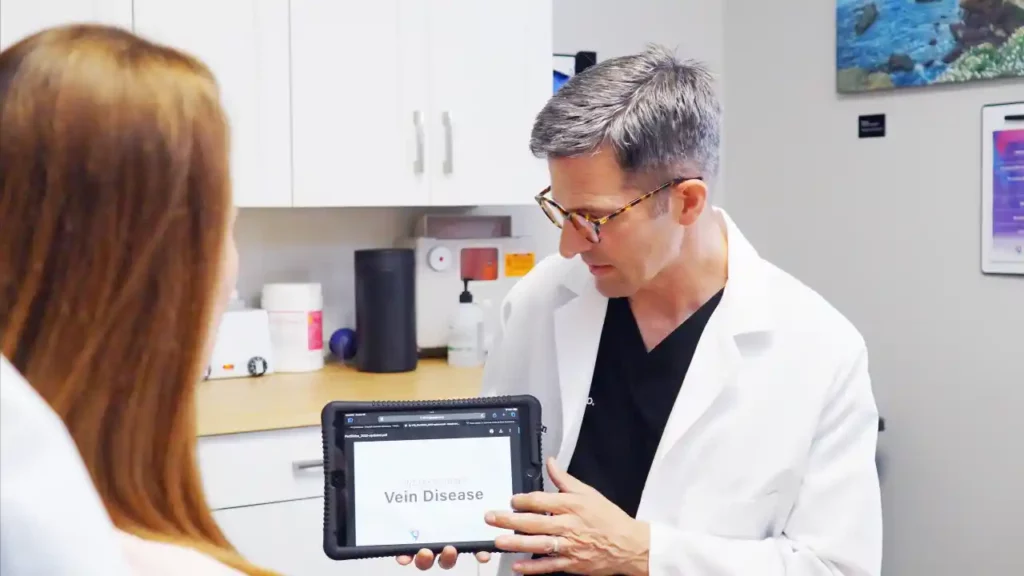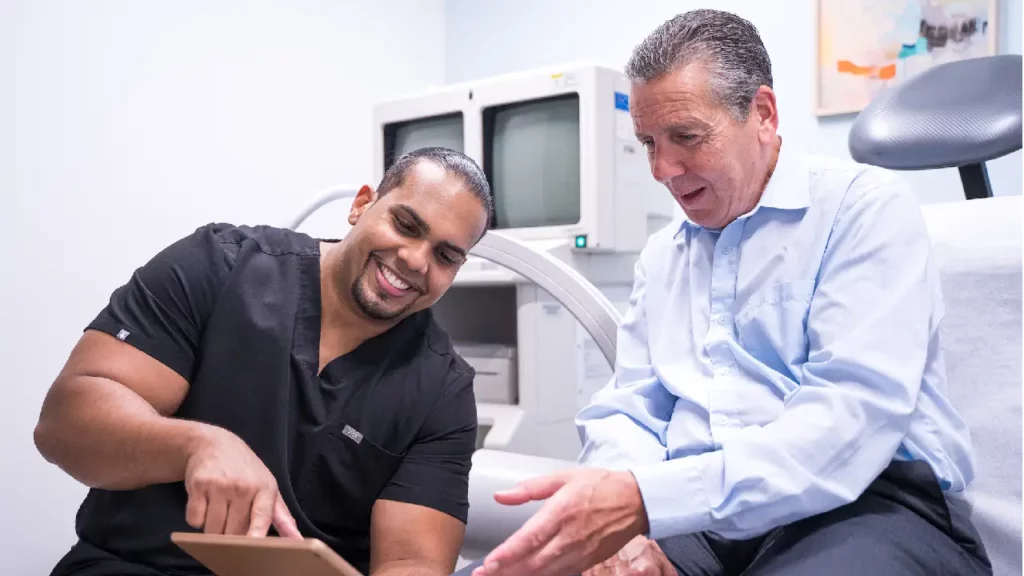Foods to Avoid with Uterine Fibroids: Treat Fibroids Today!
You’re going about your day, but something feels off. You’re experiencing unusually heavy menstrual bleeding, pelvic pain, or constant bloating that doesn’t go away. You may have even noticed your periods lasting longer than usual or experiencing discomfort during intimacy. If any of these symptoms resonate with you, you may have uterine fibroids. These non-cancerous growths in the uterus can disrupt your daily life, and your diet can play a significant role.
At Vein Doctor, we guide you through effective treatment options for uterine fibroids while helping you make lifestyle changes to support your health. In this article, you’ll learn about the top foods to avoid with uterine fibroids and how dietary adjustments can help manage your symptoms. Let’s dive into what to steer clear of and why.
Processed Meats
Processed meats like bacon, sausage, and deli are high in saturated fats and preservatives. These foods can promote inflammation, exacerbating fibroid symptoms like bloating and pelvic discomfort. Instead, opt for lean, organic proteins like chicken or turkey or plant-based alternatives such as lentils and chickpeas. These options help reduce inflammation and give your body the necessary nutrients without aggravating your condition.
High-Fat Dairy Products
If you’ve been wondering, “Is yogurt good for fibroids?” the answer depends on the type of yogurt. High-fat dairy products, such as whole milk and full-fat cheeses, can contain added hormones that may fuel fibroid growth. These hormones can disrupt your estrogen levels, a key factor in developing fibroids. If you enjoy dairy, choose low-fat or non-dairy alternatives like almond milk, oat milk, or coconut-based yogurt. These are less likely to affect your hormones.
Sugary Foods and Beverages
Sugary foods and drinks, such as pastries, candy, and soda, are not just bad for your overall health—they can also worsen fibroid symptoms. Sugar increases inflammation and can lead to insulin resistance, which may contribute to hormonal imbalances and fibroid growth. Replace sugary snacks with fresh fruits, which are naturally sweet and packed with vitamins. Instead of sugary beverages, use herbal teas or infused water to stay hydrated.
Refined Carbohydrates
Refined carbs like white bread, pasta, and pastries can cause a rapid spike in blood sugar levels, leading to inflammation and hormonal imbalances. This can make fibroid symptoms, such as bloating and cramping, more pronounced. Instead, choose whole-grain options like brown rice, quinoa, and whole-wheat bread. These alternatives are fiber-rich, which supports hormonal balance and helps manage fibroid symptoms.
Soy Products
There’s a connection between soy and fibroids. Soy contains phytoestrogens, plant-based compounds that mimic estrogen in the body. While moderate soy consumption is generally safe, excessive intake may contribute to hormonal imbalances and fibroid growth. If you regularly consume soy, try to limit your intake and opt for fermented soy products like tempeh or miso, which have a lower impact on estrogen levels than processed soy products.
Alcohol
Alcohol consumption can negatively impact liver function, which plays a crucial role in regulating estrogen levels. When overburdened, your liver becomes less efficient at metabolizing estrogen, potentially leading to fibroid growth. Reduce or eliminate alcohol from your diet to support your liver’s detoxification processes. Instead, focus on drinking water, herbal teas, or antioxidant-rich beverages like green tea.
Red Meat
Red meats, particularly non-organic varieties, often contain added hormones and antibiotics, which can disrupt your body’s natural hormone balance. Consuming red meat has also been linked to increased inflammation, which can exacerbate fibroid symptoms. Consider replacing red meat with plant-based proteins or lean, hormone-free options like fish or poultry. These alternatives are gentler on your body and support a healthier hormonal balance.
Caffeinated Beverages
While your morning cup of coffee might be a daily ritual, excessive caffeine can increase stress hormone levels, which may indirectly contribute to fibroid growth. High caffeine intake can also lead to dehydration, making symptoms like bloating and cramping worse. If you’re not ready to give up caffeine entirely, try limiting your intake and switching to herbal teas or decaffeinated coffee when possible. Staying hydrated with water throughout the day can also help.
FAQs
What are the top foods to avoid with uterine fibroids?
The top foods to avoid for people with fibroids include processed meats, high-fat dairy products, sugary foods, refined carbohydrates, alcohol, red meat, and soy products. These foods can increase inflammation, disrupt hormonal balance, and worsen fibroid symptoms. Instead, focus on whole, nutrient-dense foods to support your health.
Why are processed foods bad for fibroids?
Processed foods often contain unhealthy fats, added sugars, and preservatives that promote inflammation and hormonal imbalances. Since fibroid growth is closely linked to hormonal changes, consuming processed foods can exacerbate your symptoms.
Is yogurt good for fibroids, or should I avoid it?
Low-fat or non-dairy yogurts can benefit fibroids because they are less likely to disrupt your hormonal balance. However, high-fat dairy products should be avoided as they may contain added hormones that could worsen fibroid symptoms. Opt for alternatives like almond or coconut-based yogurt if you’re unsure.
What is the connection between soy and fibroids?
Soy contains phytoestrogens, which mimic estrogen in the body. While moderate consumption is typically safe, excessive intake may disrupt hormonal balance and potentially contribute to fibroid growth. For a safer option, choose fermented soy products like tempeh or miso.
How can I manage fibroids beyond dietary changes?
Dietary adjustments are just one part of managing fibroids, but they work best with professional medical care. At Vein Doctor for Women, we specialize in minimally invasive treatments for uterine fibroids, such as uterine fibroid embolization, which can address the root cause of your symptoms without significant surgery. Our board-certified physicians will work with you to develop a personalized treatment plan that aligns with your needs.
In addition to treatment, we provide expert guidance on lifestyle changes, including diet and exercise, to help you achieve the best possible outcomes. Take the first step toward reclaiming your health today.






